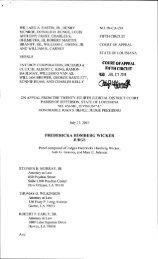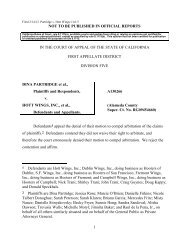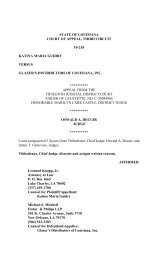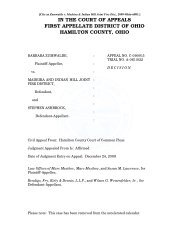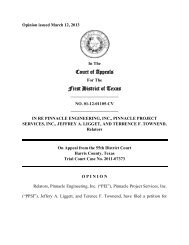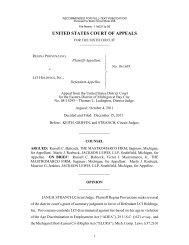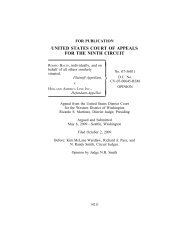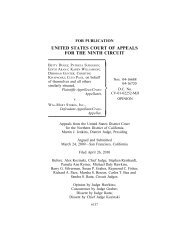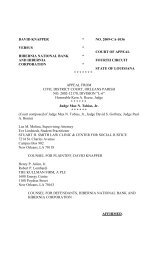STATE OF MINNESOTA IN COURT OF APPEALS A10 ... - LawMemo
STATE OF MINNESOTA IN COURT OF APPEALS A10 ... - LawMemo
STATE OF MINNESOTA IN COURT OF APPEALS A10 ... - LawMemo
You also want an ePaper? Increase the reach of your titles
YUMPU automatically turns print PDFs into web optimized ePapers that Google loves.
Under the Minnesota Rules, an employer must pay an employee for meal periods that are<br />
not bona fide:<br />
Bona fide meal periods are not hours worked. Bona fide meal<br />
periods do not include rest periods such as coffee breaks or<br />
time for snacks. The employee must be completely relieved<br />
from duty for the purpose of eating regular meals. Thirty<br />
minutes or more is ordinarily long enough for a bona fide<br />
meal period. A shorter period may be adequate under special<br />
conditions.<br />
Minn. R. 5200.0120, subp. 4 (2009). Read together, these provisions (1) require an<br />
employer to give a meal break of sufficient length to eat a meal during each eight-hour<br />
shift, and (2) allow employers to deduct from hours worked only meal breaks that are<br />
bona fide, which generally means that employees are completely relieved from work for<br />
at least 30 minutes.<br />
The district court dismissed appellants‟ statutory meal-break claim, reasoning that<br />
there is no bright-line requirement for a 30-minute meal under Minnesota law.<br />
Appellants argue that the district court missed the point, asserting that the issue is not<br />
whether the 30-minute break is required but whether a break of shorter length is<br />
deductible. Appellants, however, neither pleaded this theory nor did they argue it to the<br />
district court on summary judgment. And we generally do not consider issues not<br />
presented to and decided by the district court. Thiele v. Stich, 425 N.W.2d 580, 582<br />
(Minn. 1988). We further note that, to the extent that appellants alleged unpaid donning<br />
and doffing time before and after breaks, this unpaid time was included in the analysis of<br />
appellants‟ statutory overtime claim. Accordingly, we conclude that the district court did<br />
not err by dismissing appellants‟ statutory meal-break claim.<br />
8



